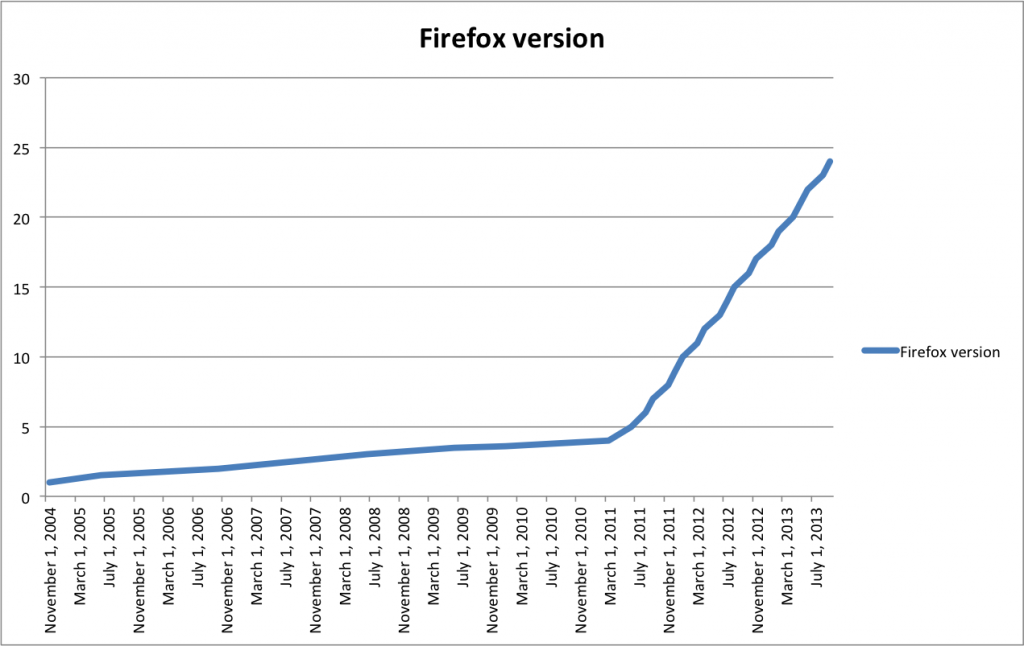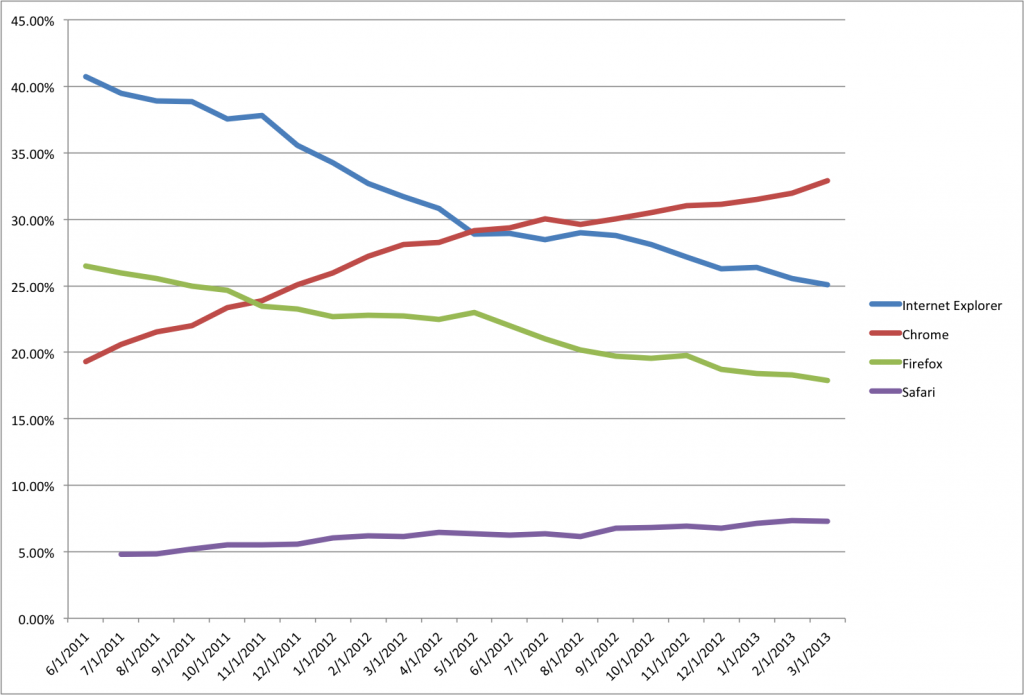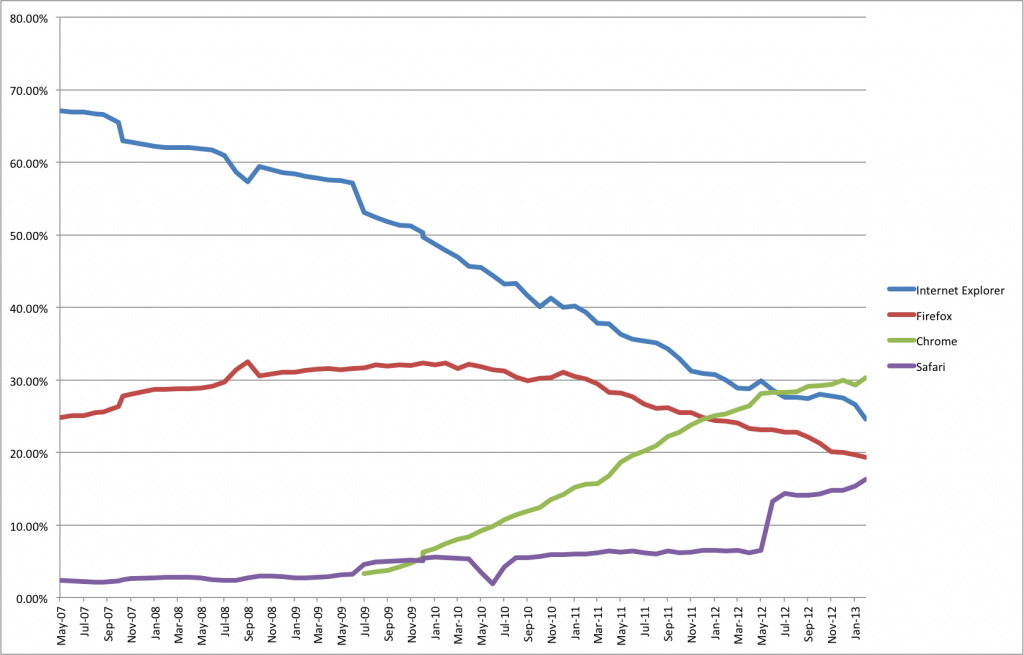Tired of Firefox fast releases?
Firefox has been releasing major versions every 6 weeks since April 2011 going from a version 4 to version 20 (time of writing). I want to present some numbers in terms of versions and browser market share of what happened since then.
What was the goal of the fast releases? Wikipedia quotes:
« The stated aim of this faster-paced process is to get new features to users faster »
The features have been added but in the busy life of users and workers it’s not the priority, we just need a browser that works, gets faster and doesn’t get in the way. I’m speaking as a user and also as a developer who loved Firefox in the past. Honestly, from a user perspective it does not appear as loads of features. Back in 2011, there were lots of articles explaining the move and possible issues, good analysis and thoughts and user concerns.
Let’s get into the numbers. I prepared a graph that shows the version evolution over time, it uses the data form the History of Firefox in Wikipedia.

Observing at the version release, one can clearly see that the release-pace is now very fast, specially compared to previous releases. In despite of this effort the market share continued decreasing. See below the market share graph, the data is from StatCounter aggregated by Wikipedia (desktop and mobile combined).
Firefox and Internet Explorer lost market share to Chrome. However IE was loosing faster till early mid 2012 where the decreasing pace of Firefox and IE is similar. What is interesting is to see the lines of Firefox and Chrome, is almost the opposite since early 2011, when the fast-releases started.
Maybe, you’re wondering what happened before 2011. The following graph is a plot of browser market share since 2007, the data used is from W3Counter.
One can clearly see that the browser that lost the most is Internet Explorer. Firefox is yet decreasing but in Mid 2010 had more than 30% market share. The 10% lost from then up to now looks steady (decreasing) and there is no any hint that fast-releases helped or affected Firefox.
What would it take for users to get excited about Firefox (again)? These are my thoughts:
- Silent upgrades. Do not ask to press a button to upgrade every 6 weeks. There are other means to catch user attention and hence loyalty, opening a tab after an upgrade as Firefox does, it’s a good one. Or even to put the version number in clear sight in the User interface.
- Javascript performance, this would definitely be a killer, a reason why currently Chrome is my browser choice. This seems to be coming with OdinMonkey (only 2 times slower than native code) in Firefox 22, in june 2013.
What about you? Do you use Chrome, Firefox, both?


